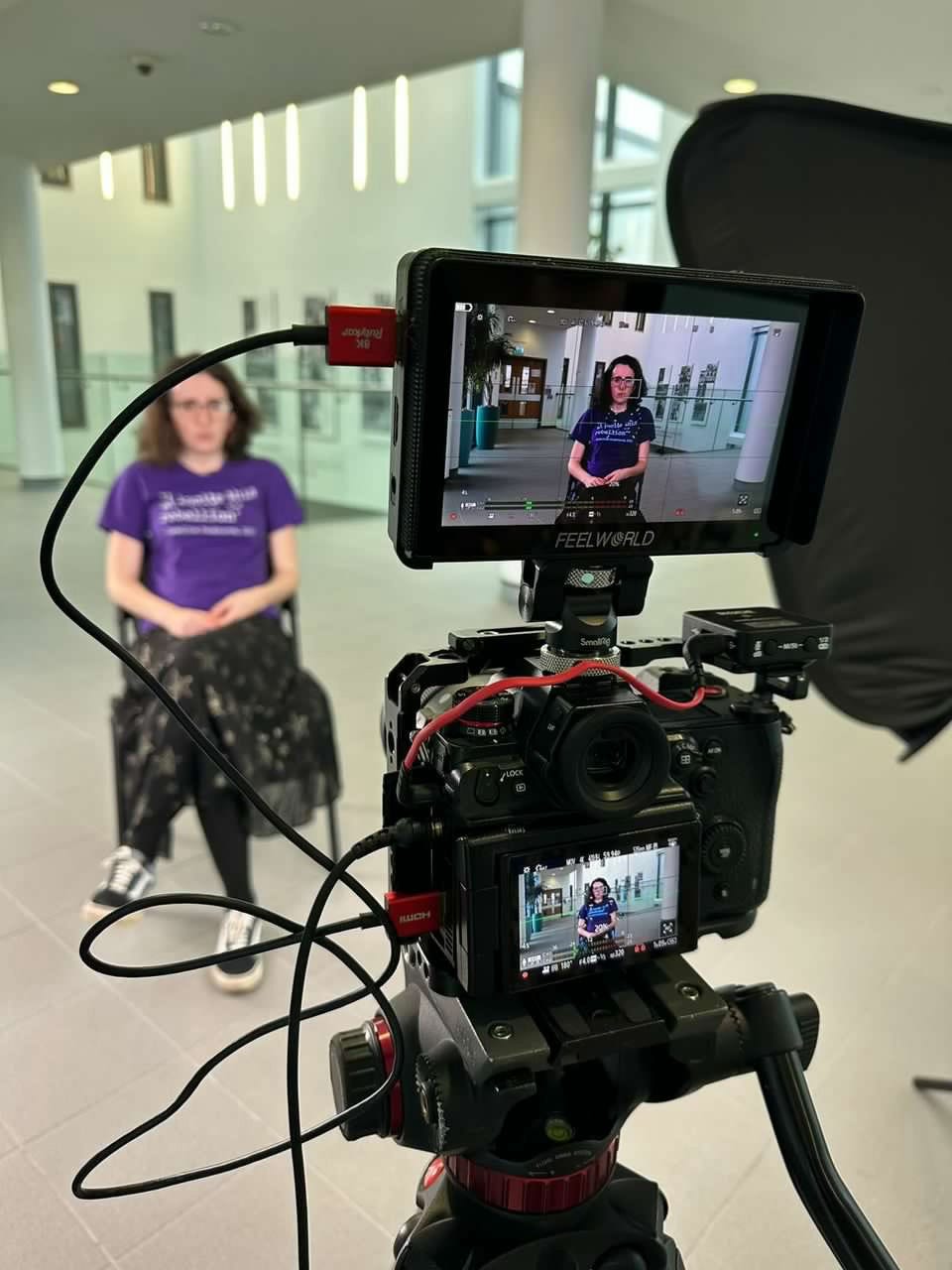“How can a non disabled person be an ally to a disabled person?”
An AccessAble Ambassador shares her personal endometriosis story
March is Endometrosis Awareness Month - and one of our Ambassadors wished to share her story of a pathway to diagnosis. Lydia Wilkins is an award winning freelance journalist and editor, who specialises in disability & social inequality issues; she has been an Ambassador for AccessAble since September 2021.
“How can a non disabled person be an ally to a disabled person?”
Delivered with a friendly smile, the question means the camera is now rolling. The cue is simple - something to coax good, verbal responses. As part of an AccessAble project, ambassadors like myself had been filming on location in a health setting, to open up conversations about accessibility in this space. You can just about see it in the photos, the videos - the wide smile, the desperate look in my eye - an effort to try and hide my unexplained, internal pain. Later at my hotel, filming done for the day, I’ll ’come around’ to consciousness, having lost a ‘pocket’ of 4 hours. Things have not been the same since.
Endometriosis is not a word I’d have connected to myself. (The full definition can be found on the NHS website.) It conjures in extremis images - while nuance around pain, pain and disablement, is lacking. Women’s pain is not taken seriously; commentary culturally can be incredibly invalidating. It’s “just something every women has to put up with”, it’s “just anxiety”, it’s “just worry.”
Disabled women, to me, have a higher weight placed upon them - in that we live in a society that actively works against us, so we may not even realise something is out of the ordinary. How would we know if anything is amiss?
The route to diagnosis or treatment is stacked with not so pretty forks in the road from the get go.
As a disabled woman - I am Autistic, as well as an individual who uses a cane due to balance issues brought about by Covid 19 - the judgement from the medical establishment as a whole is/was disproportionate. Informational basics were not known about either, making it incumbent on me to have the information to hand - including the NICE guidelines to ensure basic standards of care. I was left in tears on occasion; to have been able to speak freely to colleagues or even friends would have been such lifting of a weight carried around for too long. A person is attached to a body - and that is forgotten too often.
Endometriosis is diagnosed via a laparoscopy procedure; it took a long time for such a word to even be said out loud. I wasn’t interested in ‘cover all’ options of treatment without diagnosis; this procedure is what I am waiting for at the moment, terrified but relieved. I was lucky enough to find someone who explained and answered every question - enough to even joke about the ‘sexy’ compression socks I’d have to wear! (My alternative are Barbie pink with planets - because of course they would be.)
Covid 19 sparked a whole set of conditions and health issues for me two years ago - with this being picked up along the way. But I am also in a massively privileged position, in the Western world who has access to any care as a start. I will walk through this life colourfully, because to have been on the ‘lucky’ end means, simply put, I have a job to speak to this, and to draw attention. You just would not ‘get’ the ‘work’ of what goes into that.
To answer the question that opened this piece: Allies need to be using their privilege to speak to ingrained issues, especially in the disability space; I am so tired of awareness centred conversations. They also need to actively listen to patients. The disabled person knows the body best by first hand, lived experience after all.
Acceptance is what is needed - and as we come to the end of Endometriosis Awareness Month, this is what I ask of you.





I agree with all you say. I'd also say that pain is chronically under reported by the disability community in general.